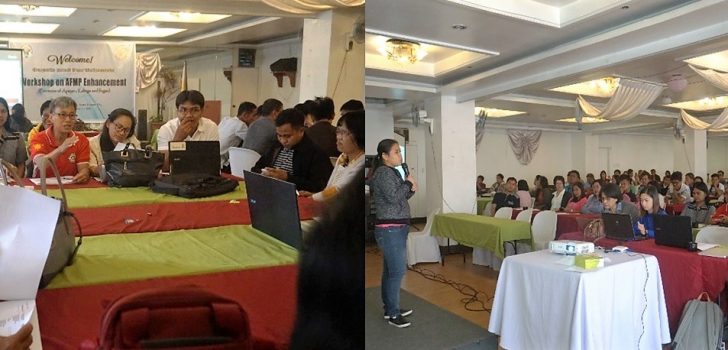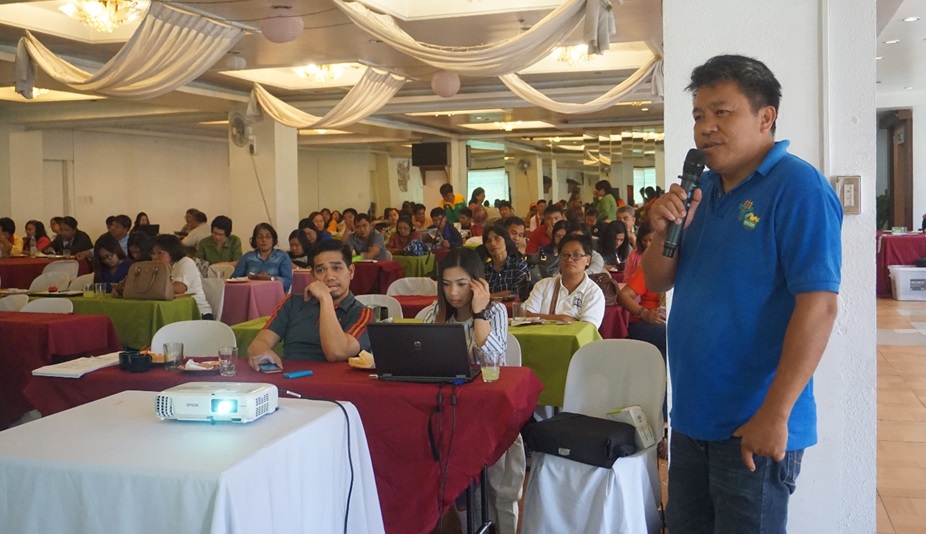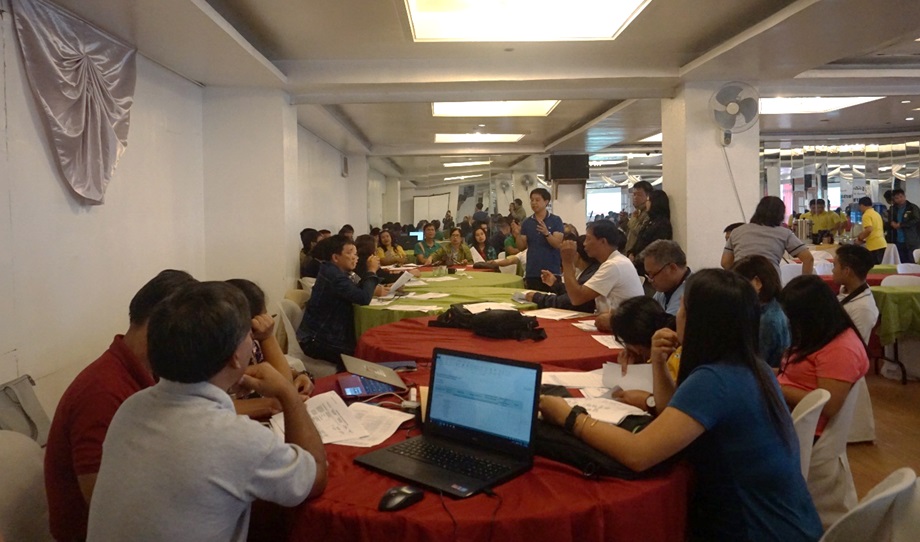
Prov’l consultation for AFMP enhancement (2018-2023) conducted in CAR
Local government units (LGUs) of Apayao, Ifugao, Kalinga and representatives from various line agencies recently converged in a consultation workshop for the enhancement of the Agriculture and Fisheries Modernization Plan (AFMP) 2018 – 2023, at City Travel Hotel, Baguio City last July 31 – August 1, 2018.
The AFMP is a six-year plan to develop and modernize the agriculture and fisheries sector as mandated by the Agriculture and Fisheries Modernization Act (AFMA) Section 13 which will serve as basis for determining the priority programs of the government as well as private investments.
With the institutionalization of the AFMP as basis for annual planning, the science-based tools used in the Department of Agriculture’s Philippine Rural Development Project (PRDP) planning and budgeting processes were adopted. This includes the Value Chain Analysis (VCA), expanded Vulnerability and Suitability Assessment (eVSA), Climate Risk and Vulnerability Assessment (CRVA), and Provincial/City Commodity Investment Plan (P/CCIP); as well as the results framework approach and partnerships within government and to private sectors.
“The AFMP is for the entire agriculture and fisheries sector which aims to expand economic opportunities for those engaged in producing agriculture, fishery and forestry products; and to increase access of small farmers and fisherfolks to economic opportunities,” said Armylene Posada from the DA National Office.
During the consultation workshop, DA-CAR Planning, Monitoring and Evaluation Division Chief Susan D. Balanza discussed the main objective of the workshop which is to gather specific interventions identified by stakeholders particularly on priority commodities without roadmap, PCIP, and VCA.
“The data in the PCIPs will be automatically incorporated in the AFMP. However, the commodities with roadmap and those that has already VCAs will no longer be included in the selection of commodity to be prioritized,” said Balanza.
To brief the participants on the process of selecting commodities to be prioritized, the PCIP process was explained along with the regional development framework for rice, corn, livestock, fisheries, high value crops, organic, research and development, agriculture and marketing, production, policy, regulatory, rural infrastructure, extension, credit and Halal.
Workshop mechanics and the “AFMP Investment Capture Matrix” were also presented to guide the participants in their planning exercises.
Balanza emphasized that the selection of priority commodities should be based from the criteria for interventions which are sustainable, accessible and acceptable to small and poor farmers, does not contribute to environmental degradation, should be climate-resilient, and should benefit majority of the farmers.
Meanwhile, similar activities were previously conducted for the province of Benguet, Mt. Province, and Abra. Cutflower and ornamentals were identified by Benguet; citrus for Mt. Province; and cacao, livestock and lowland vegetables for Abra.
For this batch, all three (3) provinces identified livestock as a priority commodity with the inclusion of pineapple for Apayao, and highland vegetables for Ifugao.
During the presentation of workshop outputs, representatives from the DA banner programs and line agencies provided inputs for the consideration of the provinces in their planning.
“Let us take into consideration our watersheds so that we can take care and protect our forest areas as we plan for these interventions,” said Nova Lee P. Rodriguez of Apayao Provincial Environment and Natural Resources Office (PENRO). She emphasized the importance of convergence among different agencies in providing interventions in support to the identified commodities.
Balanza said that the data from the consultation workshops that were conducted will be finalized and refined taking into consideration, the comments/ suggestions and inputs of DA and other agencies before it would be encoded in the system/ matrix.
The AFMP is formulated to flesh out the agriculture and fisheries chapter of the Philippine Development Plan 2018 – 2023 and to comply with the PRDP loan covenant to develop the successor AFMP by 2018. (ELVY S. TAQUIO, DA-PRDP RPCO-CAR InfoACE)


